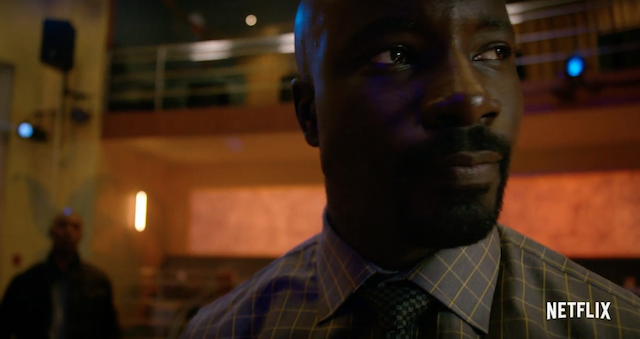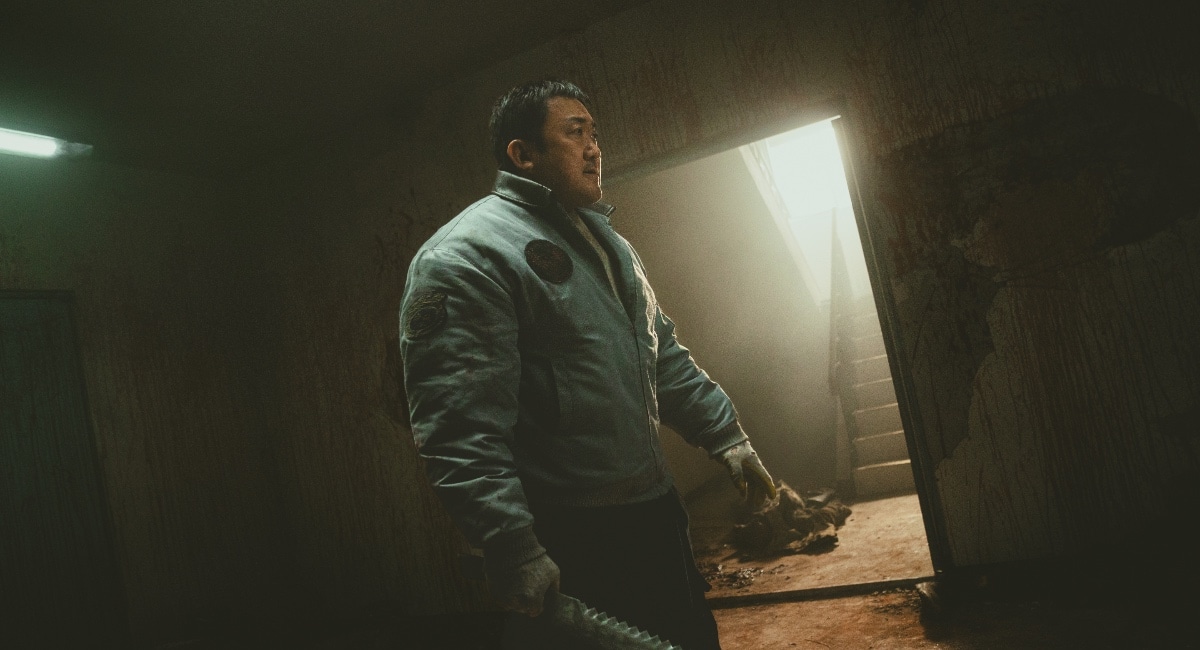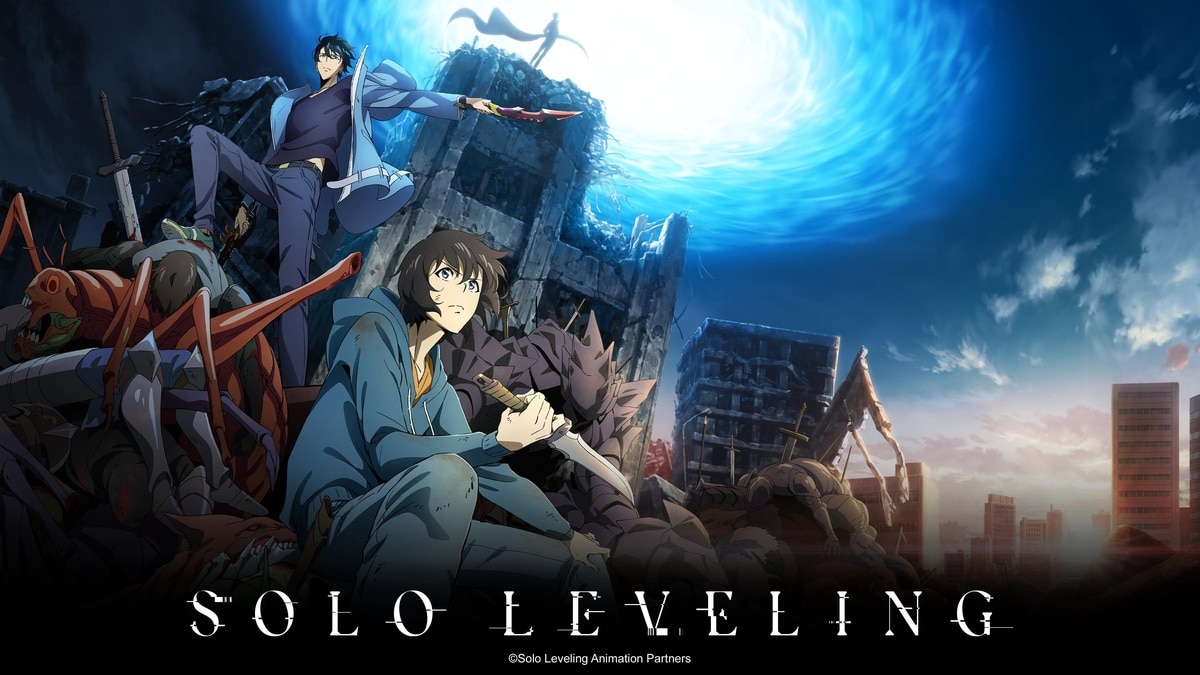This review is spoiler-free, though if even a modicum of detail about the series is too much, let the title be your guide. Additionally, this review is based off the first seven episodes of the series.
Superhero television is a fairly hit or miss proposition. Certainly, one could say we’re currently living a golden age of adaptations of the spandex sort, with fans of series like The Flash, Supergirl, and Daredevil all citing their favorite series as the best of what superhero live-action media can offer. But none of these shows are lauded as exceptional outside of the genre. Even Daredevil, which incorporated better writing, more mature themes, and bone-crunching violence, is still a fairly iffy proposition when Vincent D’Onofrio isn’t on screen. Still, the Netflix model has proven to be the next successful evolution of what televised superhero adaptations can be, with last year’s Jessica Jones going so far as to *actually being about something* in the way it incorporated feminist thought, coming to terms with traumatic experiences, and the clever utilization of its antagonist’s abilities to almost engender sympathy with the audience before the crushing truth came toppling down like Wilson Fisk’s fists.
On paper, Jessica Jones was an exceptional series, but in terms of execution it had its own share of struggles, most notably a sagging final third set of episodes and some poorly integrated and performed supporting players. Luke Cage, in a sense, plays as a bit of a sequel to that prior series, picking back up where its final episode left off – with Luke leaving Hell’s Kitchen and going into hiding in Harlem. Though it’s not long before his past comes back to haunt him in a devastating way, and it forces him to come out of the shadows to face off against club owner and mob boss Cornell “Cottonmouth” Stokes, Stokes’s politician cousin Councilwoman Mariah Dillard, and mob enforcer “Shades” Alvarez. Keeping a close eye on Cage all the while is Detective Misty Knight, an honest cop and Harlem native, along with her partner Rafael Scarfe.
The key difference between the two series? Luke Cage is, without fail, exceptional on all fronts.
The biggest challenge that surely faces any adaptation of Luke Cage is that, unlike Daredevil and Jessica Jones, there isn’t really much in the way of source material or a go-to run a discerning comic reader could point to and say “this is clearly what should be adapted directly to screen”. Amazingly, and as Coker told The Beat back at SDCC, what should be the glaring weakness of translating this character and his world to television ends up allowing the showrunner and his writers the ability to breathe and mold the characters in a way that’s far more natural for television. There’s no need to include a character or plot point just because Frank Miller or Brian Michael Bendis contributed them to the mythos. And sure, there are a number of characters that are included that exist in the old Goodwin/Romita comics, but Coker molds these characters into something new and multi-layered, dripping with theme from the opening moments of the first episode.
And what themes they are. Much like Jessica Jones is a show with a very specific point of view (that of a woman), Luke Cage takes a look at black culture head-on. In between its more high-octane sequences, Coker and the writing staff tackle some truly heady stuff, including black identity, class conflict, inner-city crime, civic pride, and life after imprisonment. One of the main drivers behind the majority of this subject matter is that instead of attempting to create a fictionalized iteration of a community like Hell’s Kitchen, which the two previous series have done, Luke Cage is set right in Harlem, where there’s no need to alter anything. The neighborhood becomes a fulcrum point of everything that drives the storytelling within the series, from the hero who sits at the beating heart of the city, to the villains who use the tools made available to them to make sure their ends are met (and their respective goals are sometimes pretty altruistic). From the soul, R&B and hip-hop – and performances of such – that fill many episodes, to the way the series approaches Cage’s origins and the constant reminder of just what he, and other young black men, have to live up to, despite trying circumstances (the series name-checks such giants as Crispus Attucks and Ralph Ellison), this is the rare superhero piece that transcends its origin point and becomes something much grander and more profound. In a set of years where we’ve come to see that we really don’t live in a post-racial America, this is a series that needs to be seen. Coker’s perspective is invaluable and the clarity of his voice rings through at all points.
While Mike Colter remains as perfectly cast as he was on Jessica Jones, exuding steely confidence, an imposing demeanor, sex appeal, and a general sense of stoicism, there are two other performances that I think I really stand apart and are worthy of mention:
One of the best aspects of each of Marvel’s Netflix offerings is the richness of their villains, as both Fisk and Kilgrave proved to be menacing and mostly multi-faceted creations that blow away their big screen counterparts, save for Loki. But again, both The Kingpin and The Purple Man are well-crafted characters that have much to draw from, regardless of how exceptional both D’Onofrio and David Tennant’s performances were. So when I say that Mahershala Ali’s Stokes is easily their equal, if not even more richly defined, that achievement is a both a credit to what’s on the script page and just what sort of meditative ferocity Ali is able to conjure behind this figure, who is at once terrifying and incredibly sympathetic. This is a character so vivid that, while being the clear antagonist of the series’ machinations, one can’t help but be amazed at the moral gray tones that he’s swathed in. If there’s a series MVP, it’s probably him, though there’s another contender for that crown (and I do use that word intentionally).
The “love interest” is often a thankless task for most actresses who are brought in as the female lead of the series. Something that I really appreciated about how Luke Cage approaches Misty Knight is that she’s never really treated as someone who’s only concern is that of the male lead. Sure, his actions definitely compel her in some ways, but she is a character with her own motivations, and a sense of capability that’s rather lacking in how we see someone like Iris West or even Karen Page presented. Misty Knight, as you would come to hope, really just kicks ass. Simone Missick is a revelation in the role, her chemistry with Colter is off the charts, and unlike the supporting characters that populate previous Marvel and Netflix engagements, she’s given a subplot that both dovetails with the “A-plot” and also strengthens its core. That can really be said for most of the participating players involved, there’s no sense of “let’s send Foggy and Karen off to do this, while Matt is already two steps ahead of them” or “let’s bog down in Trish’s relationship.” This is a show so well constructed that everyone has an important role to play, and while I’m sure I could pick apart some bits of fat here or there, I’m hard pressed to find anything that doesn’t feel at least somewhat essential from a plotting or characterization standpoint, barring maybe one cameo that starts to veer things a little too closely to Defenders set-up. Even Frank Whaley as Scarfe, who on initial appearance seems like a toss-off character, gets some terrific beats to play with and helps drive the story forward.
It’s possible that the only trouble Luke Cage may face is that it’s a very slow-going show, far more talkative and contemplative than anything we’ve seen from Marvel Television thus far. Those looking for the comic-based thrills of other series may run into some trouble here, but if you’ve grown tired of the black and white morality plays the generally comprises the genre and want something that resembles prestige television, Luke Cage is just what you’ve been looking for. It couldn’t have come at a better time.









SO glad to hear it’s living up to the trailers and hype. The ONLY niggle I have here is that I never felt “bogged down” in Trish’s relationship! She was great!
And hands up who else is super happy to see Mahershala Ali get a good, juicy role after being somewhat sidelined in later season House of Cards! I really hope he doesn’t die at the end of the series. C’mon Marvel, keep SOME of your villains alive!
Thanks for the review. Got me well psyched!
Whooops! This doesn’t bode well for me, as my opinion usually is the complete opposite of Kyle Pinion. :-)
Will still give the show a spin, though.
Luke Cage is Marvelous! (Sorry) What a joy to see a world of black people in all their complexity, living, loving, fighting; just being people. It took me a minute to settle into the show’s rhythm; it moves like life; at its own pace. But you begin to feel it as it goes along. It isn’t an adventure story at all; It’s a drama. I love every bit of it. The performances are powerful. The visuals are like a comic book in your head. The writing and directing are delicious. And Pinion is correct. This show comes at precisely the right time. Thank you Marvel. Thank you Netflix.
Luke Cage is amazing. I really enjoy every moment of it. My son game a new netflix username and Thank you so much Netflix.
Comments are closed.